
NPS/D. Khalsa "[My grandparents said] the game and animals will be alive and good. It’s just the people that are going to have to show them RESPECT. And let them know don’t kill too much so there’ll be more for later; Learn to live off the land and learn to kill what you eat only...And teach our kids how to hunt and skin and live off the land because if you don’t teach them that and you get old...there’s nobody going to be around to provide for you." –Clarence Delkettie, in "Respect the Land, It's Like Part of Us"
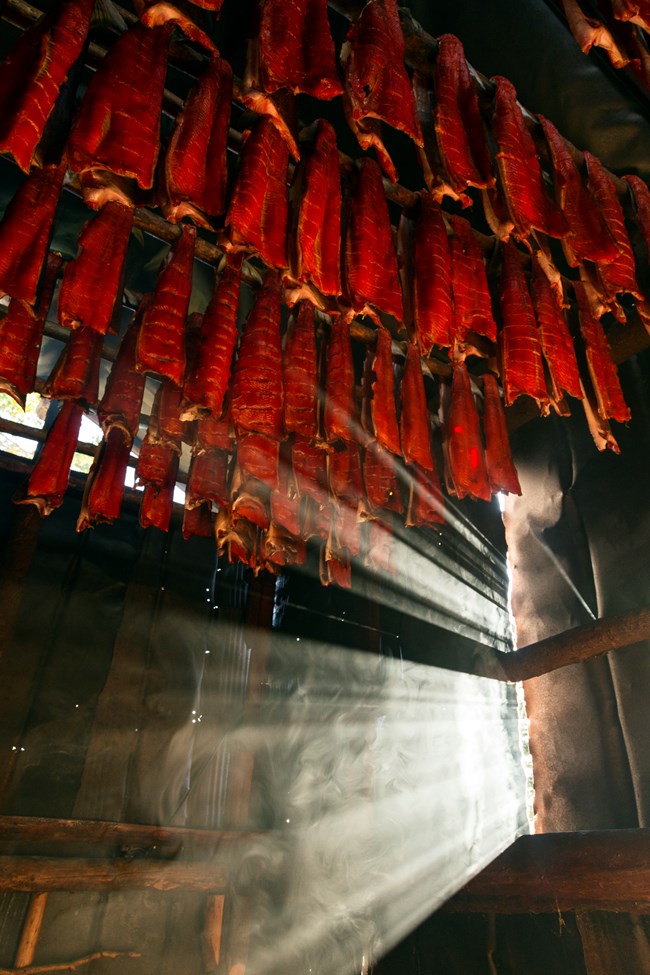
NPS/T. Vaughn Ye’uh Qach’dalts’iyi'What We Live On from the Outdoors'
"that’s something that has to be taught to everyone… like especially younger generations.They have to understand that when you go hunting or anything, we’re using something from the land. You have to have respect for it.” –Randy Kakaruk, in "Respect the Land, It's Like Part of Us" 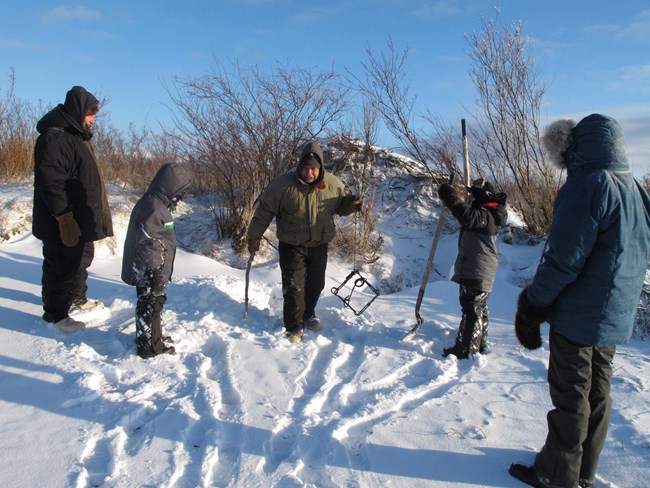
Photo courtesy K. Evanoff Lake Clark's abundance of natural resources are the backbone of life and economy for people in Southwest Alaska. Today, as in the past, many Alaskans live off the land, relying on fish, wildlife, and other wild resources. Subsistence, and all it entails, is critical to sustaining both the physical and spiritual culture of modern Alaskans. Lake Clark National Park & Preserve was created in 1980 by the Alaska National Interest Lands Conservation Act (ANILCA), which also provided for continued subsistence use of the park by local residents. Today people continue to use the area's rich resources in traditional ways. ANILCA stipulates that local rural people may continue subsistence practices on federal lands, including the park and preserve. Subsistence Resource Councils made up of local residents advise National Park Service staff on policy development and implementation. The National Park Service coordinates with other agencies and Regional Advisory Councils from across the state in federal subsistence management. Learn more about subsistence use throughout national parks in Alaska. 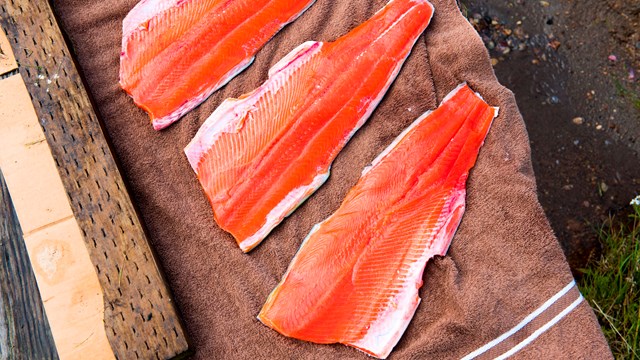
Subsistence: The Ethics of Taking
Discover how inland Dena'ina people sustainably live off the land. 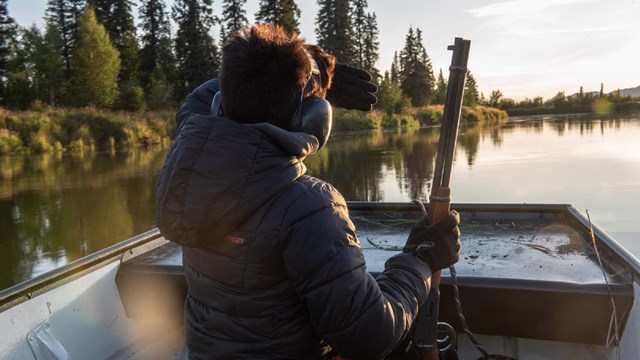
Subsistence: Hunting and Trapping
Scope out more on the traditional hunting and trapping methods of inland Dena'ina people. 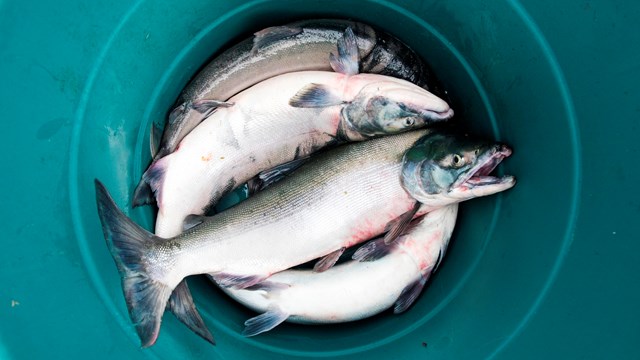
Subsistence: Fishing and Fish Camps
Explore the cultural tradition of fishing for salmon at fish camps. 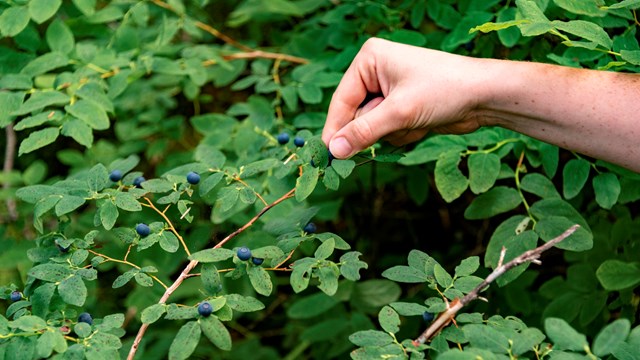
Subsistence: Plant Harvesting
Harvest more knowledge on the traditional use of local plants. 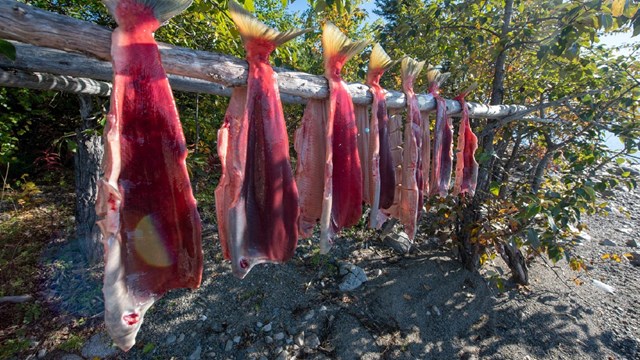
Kvichak Subsistence Ethnographic Study
How families in Iliamna, Newhalen, Nondalton, and Port Alsworth of Bristol Bay's Kvichak District make decisions about subsistence fishing, 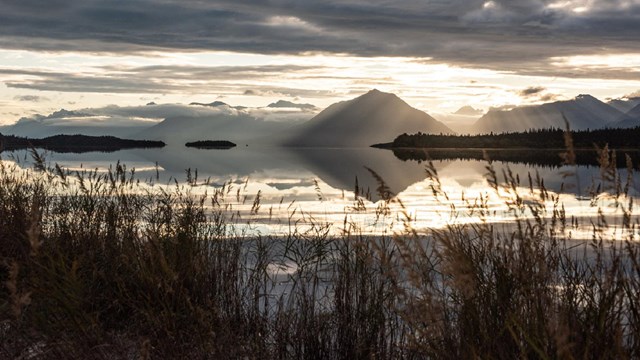
Respect the Land—It's Like Part of Us
Just published! A Traditional Use Study of Inland Dena'ina Ties to the Chulitna River and Sixmile Lake Basins. Get InvolvedThroughout Alaska, management of subsistence use on federal lands (e.g., national parks) is largely handled through the Federal Subsistence Board. Board meetings are an opportunity to interact with people who oversee the program and to suggest proposals for changes to subsistence management. Lake Clark Subsistence Resource Commision MeetingsView meeting minutes from recent meetings. |
Last updated: July 9, 2025
